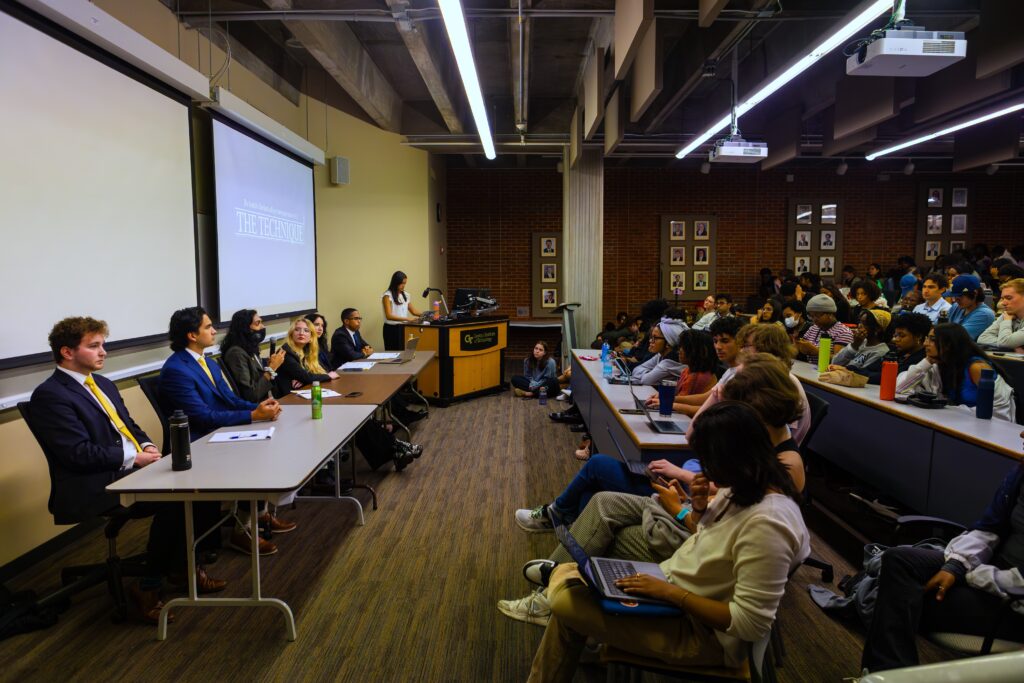
In late April, the Justice Department (DOJ) initiated an investigation into claims of discrimination against white men at the student-run law journal, the Harvard Law Review, with a hearing now set for July 21.
The investigation epitomizes President Donald Trump’s yearslong attack on the press for alleged corruption and bias and the administration’s more recent crackdown on higher education. As a top research university, Tech has already felt the effects of federal and state legislation shaping what projects receive funding and how our resource centers are structured. However, Tech is not alone in seeing how systemic change in higher education bleeds into the lives of all Americans.
The Harvard Law Review operates independently of Harvard University and is widely considered the one of the most prestigious law journals in the United States, with high-level courts using articles from the Law Review to support rulings and develop arguments. It is undoubtedly important to investigate and condemn instances of racism and bias when they occur, particularly in fields as impactful as the legal one.
More broadly speaking, independent student publications, including the Technique, have a responsibility to take claims of discrimination seriously which may lead to biased hiring or reporting. Dually, publication’s independence from university and government oversight without fear of retribution allows them to cover difficult issues honestly and impartially. A publication is only as comprehensive as the voices and subject matters it chooses to present. This issue extends beyond student background; for example, college campus publications must consider club participation, field of study and personal interests when researching for news that impacts their readers.
The federal investigation into The Law Review calls into question the point at which biases are severe enough to require intervention from a higher body, whether it be a university or government.
The case, as far as the government has disclosed, is predicated on the testimony of one cooperating witness, Harvard Law graduate Daniel Wasserman. In documents obtained by the Washington Free Beacon, editors at the Law Review make note of the racial and educational background of various authors and where their perspective may be limiting or may provide a new angle on a topic.
Interpreting the law is inherently biased, therefore it is necessary to include as many perspectives on a given subject as possible. Choosing to uplift a variety of expert voices, not just one, accounts for more biases and therefore tends to represent more of the people that the law presides over.
The Law Review boasts an impressive roster of influential alumni including former President Barack Obama and late Supreme Court Justice Ruth Bader Ginsburg, both of whom shaped laws and articulated important decisions in the government to Americans. Obama’s election was not a diversity hire by the American public; he is a gifted speaker and politician that struck home for a majority of voters — twice. It is impossible to know if working on the Law Review specifically propels alumni’s careers, but it is impossible to deny that the Law Review generates highly regarded information and interpretations.
All publications should have the shared goal of generating the highest quality of content to inform their audience. Publications have an obligation to find the reporters and investigators that understand and can talk about issues clearly. They also have a duty to be thorough and cover a variety of topics within their scope, not just the headlines or titles that are interesting to one type of person. Finding the right writer or speaker to cover a topic is not dependent on if they align with the issue or affected group — it is dependent on their ability to holistically capture a subject matter.
However, the looming threat of litigation or financial abandonment directed at student publications from the source that funds them tends to silent student voices even further if applied wantonly. The accusations levied against the Law Review and the ensuing investigation hurt the freedom of the press on college campuses and also stifles a voice that supports the system of checks and balances that maintain our democracy. If bias is the root cause of the concern, limiting research and threatening student publications is not the solution.
The post Consensus: Federal Probe in Student Publications appeared first on Technique.

